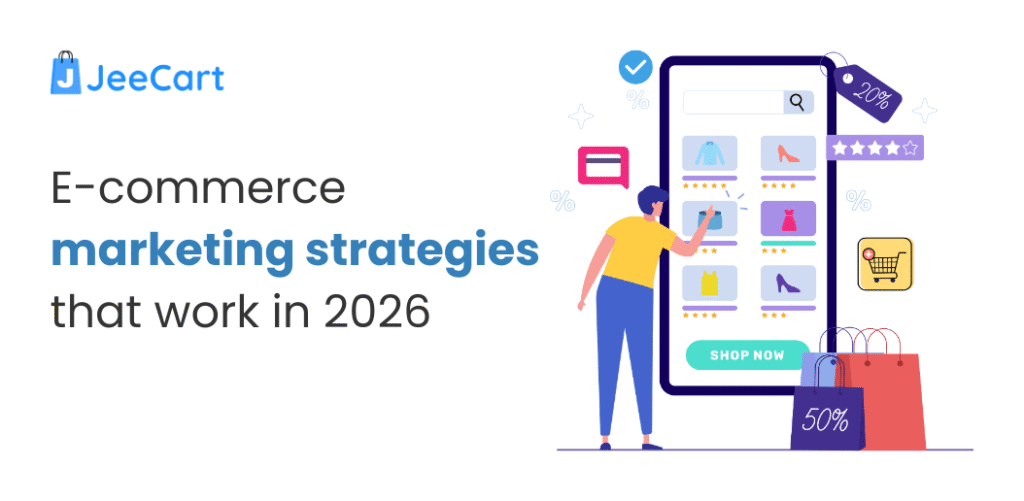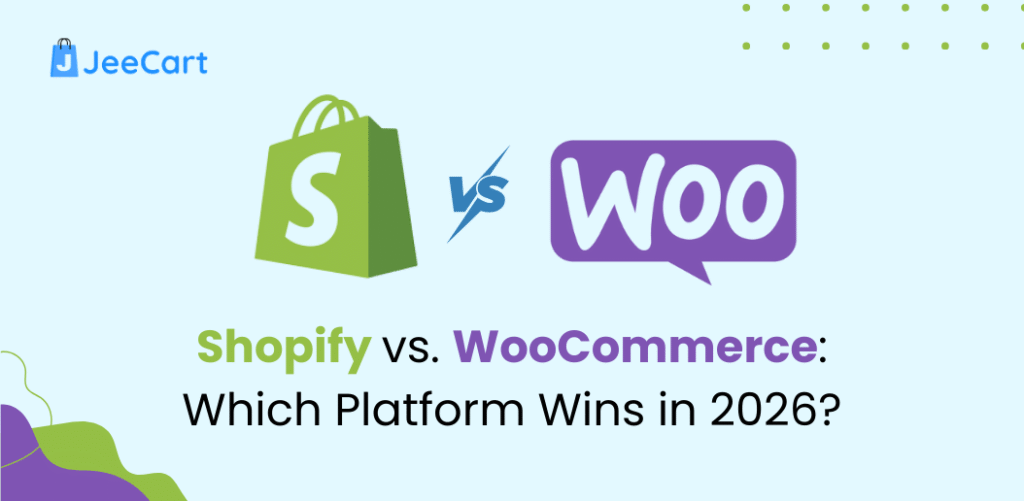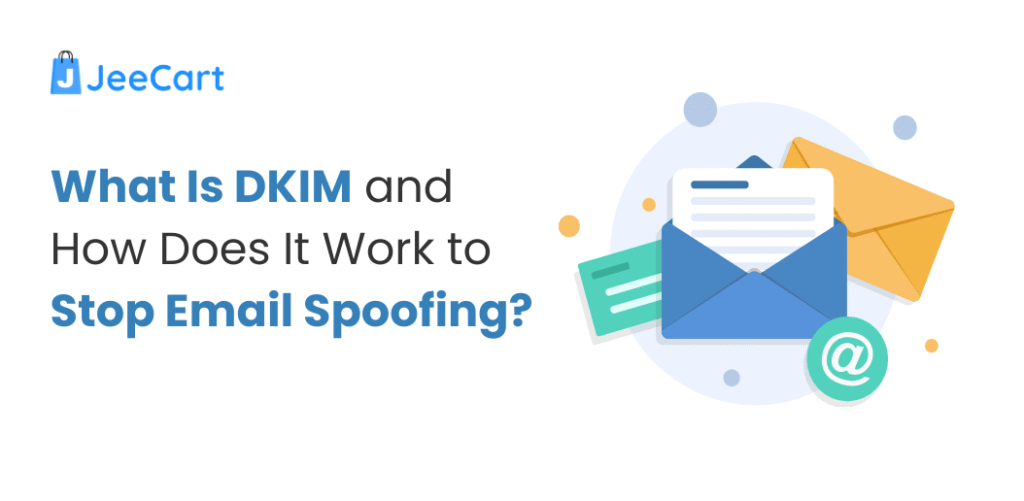 Picture this: it’s 2 AM, you’re half-asleep, browsing online, and somehow the website knows exactly what you’re looking for. Your questions? Instantly answered. The product suggestions? Surprisingly perfect. And checkout? A breeze.
Picture this: it’s 2 AM, you’re half-asleep, browsing online, and somehow the website knows exactly what you’re looking for. Your questions? Instantly answered. The product suggestions? Surprisingly perfect. And checkout? A breeze.
AI in Ecommerce is making waves, and most people have no idea about the changes it is making to online shopping.
No matter if you are an Ecommerce consumer interested in technology, aiming to start your own business, or just curious, getting to know AI in Ecommerce is crucial. With this technology, we can reshape businesses, create fresh options, and handle issues that were impossible to approach a while back.
We are going to take a close look at how AI is changing online shopping and explain how you can take advantage of it. Over the past few years, the AI in Ecommerce Industry has grown rapidly, making it easier for both new and established businesses to improve customer experience and streamline operations.
What Exactly is AI in Ecommerce?
In Ecommerce, AI is about using intelligent technology to benefit every part of shopping on the internet. The moment you go to a website, AI will start working in the background to make the site more personalized, guess your behavior, and support efficient business processes.
AI will use intelligent technology to benefit every part of shopping on the internet. The moment you go to a website, AI will start working in the background to make the site more personalized, guess your behavior, and support efficient business processes.
Consider it a great assistant that is always awake, observes countless customers at once, and constantly improves. Amazon, Netflix, and Spotify are just a few of the major platforms where these things are already happening.

Which are the Real Problems AI Solves in Ecommerce
1. The Overwhelming Choice Problem
Did you ever get stuck trying to choose between a wide range of products online? AI helps Ecommerce by suggesting smart, personalized items. The system goes through your browsing record, buying choices, and length of looking at products online to tailor suggestions just for you.
About 35% of Amazon’s sales are influenced by its recommendation system. AI is perfectly suited to Ecommerce and that’s why it happens.
2. The 24/7 Customer Service Challenge
Most small businesses and startups have difficulty handling customer service around the clock. AI makes it easier by using chatbots that assist with many customer needs and help when selecting products all by themselves, without any help.
3. Inventory Management Nightmares
Worried you will not have the popular items around or will be left with things nobody wants? With AI forecasting, companies know what items to expect in demand and when, cutting down on potential waste and leaving popular things on the shelf for customers.
From personalization gaps to inefficient operations, AI in Ecommerce addresses pain points head-on. But what does that look like in action? Here’s a breakdown of the key benefits.
Key Benefits of Using AI in Ecommerce
| Benefit | Impact |
| Personalized Recommendations | Higher engagement and more repeat purchases |
| Automated Customer Service | Faster query resolution, 24/7 availability |
| Inventory Optimization | Reduced losses and better demand forecasting |
| Fraud Detection | Secure transactions and reduced risk |
| Marketing Automation | Higher ROI through targeted campaigns |
Whether you are just starting your online store or scaling up, AI growth Ecommerce tools can dramatically improve operational efficiency and customer satisfaction.
Now let’s talk about how you can tap into them, starting with the top tools and platforms built for using Generative AI in Ecommerce.
AI Tools and Platforms Driving the Future of Online Shopping
Let’s look at some popular platforms leveraging AI today:
- Shopify—Offers AI-driven product recommendations and SEO tools
- Amazon—Uses AI for dynamic pricing, voice search, and predictive buying
- Google Shopping—Applies AI to refine search results and predict user intent
- Promo Amp – Grow your business with viral giveaways
- ReferralCandy—Leverages AI to supercharge referral, affiliate, and influencer marketing
- Chargeflow —uses AI to help merchants recover chargebacks on autopilot.
You don’t need to build AI from scratch. Plenty of plug-and-play tools exist, making using AI in Ecommerce more accessible than ever. For businesses looking to design custom AI solutions tailored to their unique needs, partnering with experts in Generative AI development services can help create smarter, scalable systems that go beyond standard tools.
Pro Tip: Start small. Use AI-powered email marketing or chatbots to understand how it impacts your workflow and then expand.
Tech is only as good as the transformation it brings. Here’s how using AI in Ecommerce is reshaping everything from product recommendations to inventory management.

How AI is Transforming Different Aspects of Ecommerce
Personalization That Actually Works
AI in eCommerce goes way beyond those basic “customers also bought” suggestions. With access to massive amounts of data, today’s AI can build detailed customer profiles, understanding preferences, behaviors, and even shopping habits.
If you are interested in fitness and often place orders late at night as well as look for eco-friendly goods, AI adapts what emails you get as well as what goods you might be interested in.
Smart Search and Visual Recognition
Have you ever come across a product that you knew but couldn’t say what it was called? AI in Ecommerce added visual search so you can upload a photo, and it will quickly find similar things for you. Pinterest’s visual search feature and Google Lens are examples of how search technology is shaping easier shopping.
Dynamic Pricing Strategies
With AI in Ecommerce, companies can quickly adjust their prices based on demand, competitor pricing, stock levels, and customer behavior. Just because there are alternatives doesn’t mean people have to be exploited, as the firm can still give competitive offers and remain strong financially.
Fraud Detection and Security
Companies lose over a billion dollars every year because of online fraud, especially those operating globally. A Merchant of Record with built-in AI fraud detention can help prevent these losses by monitoringfor irregular behavior in transactions, stopping fraud ahead of time, and helping with online security.
The Explosive Growth Numbers You Need to Know
The AI growth Ecommerce statistics are staggering:
- The global AI in Ecommerce market is expected to reach $50.98 billion by 2033.
- Businesses using AI for customer service see a 67% increase in customer satisfaction
These numbers are not just impressive, they represent real opportunities for anyone looking to start an online business or improve an existing one.

Practical Applications for Young Entrepreneurs
AI for Ecommerce has never been easier to use if you are interested in creating your own online business.
Chatbot Platforms: You can use software like Intercom or Drift to get AI-supported customer service, paying less than the price for just one part-time employee.
Recommendation Engines: Shopify and others now provide automated recommendation functions that low-tech companies can set up easily.
Marketing Automation: Mailchimp and other tools use artificial intelligence to make sure email messages are sent at the right time, have engaging subject lines, and contain the best kind of content.
Branding Made Simple: With tools like ChatGPT Logo, you can instantly generate a clean, professional logo that matches your store’s vibe — no design experience needed.
Inventory Management: Using apps like TradeGecko, a company can rely on AI to predict needs and automate their order process.
The Challenges and Limitations
Implementing AI in Ecommerce is not always free of challenges. People are paying more attention to their privacy because they know how their data can be collected and handled by companies. It is easy, however, for businesses to depend too much on automation and miss the real benefits of serving clients with a personal touch.
To run well, AI in Ecommerce depends on having quality data. In tech, they say, “Garbage in, garbage out.” So, at the start, it can be hard for small businesses to generate enough useful data for AI systems.
The Future Landscape of AI in Ecommerce
AI in Ecommerce is on the rise, indicating we have a lot ahead. More and more, people can shop using augmented reality, place orders by simply speaking, and receive their goods before they even decide on what to buy.
This opens a unique chance for young professionals and entrepreneurs to take part in the rise of technologies that will lead commerce during the next decade.
Conclusion
The evidence shows that using AI in Ecommerce is not a passing trend every business needs it. Running a store on your own or with staff, AI tools can give you more time, benefit your customers, and boost your sales. In today’s market, actions must be based on solid knowledge because relying on guesses won’t be helpful for long. You can use AI to analyze real information, which helps your business thrive.
Don’t fall behind. Start using AI in Ecommerce and take the lead.




